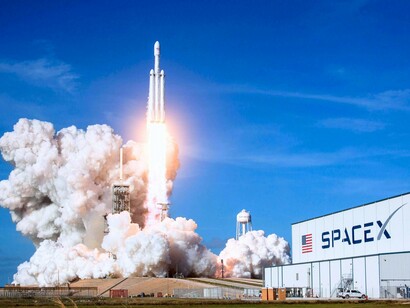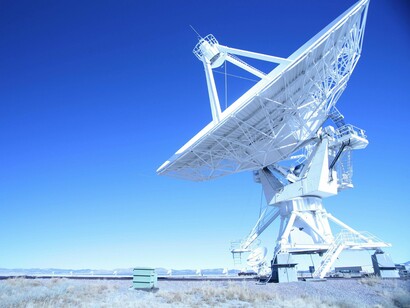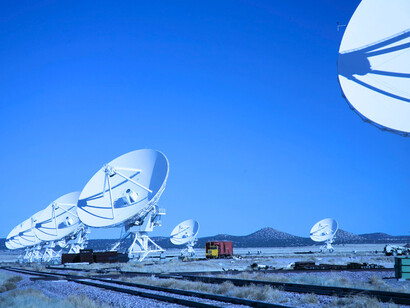Outer space is no longer just a romantic idea of exploration. It has become a vital strategic area with significant influence in global power dynamics. Low Earth orbit is now a critical pathway supporting communications, navigation, high-resolution imaging, and vast data flow for both economic and defence purposes. Technological and commercial advancements are happening rapidly, but international law, based on treaties from the 1960s, struggles to keep up with current operations. This gap between fast-paced technology and slow regulation presents challenges, opportunities, and risks.
Fundamental concepts and theoretical framework
In today's space environment, value extends beyond just the satellites themselves to the entire ecosystem, including orbital communication networks and ground-based data analysis. Sovereignty in space is less about owning celestial bodies or orbital locations and more about protecting national interests and space-based assets through careful national regulations and advanced monitoring.
National space security involves more than just having weapons; it means integrating space into command and control strategies to ensure continuous operations and deterrence against interference or sabotage. However, despite its guiding principles of non-appropriation and peaceful use, international space law lacks strong enforcement and doesn't address emerging issues like orbital debris, space mining, and close approaches.
The logic of competition
Countries are now competing not only for satellites but also to set standards and lead the way. The United States has pursued voluntary standards linked to private investment, allowing private companies to drive national influence. Reducing launch costs and leading in technology are key parts of this strategy. China has taken a different approach, closely integrating government and industry to achieve self-sufficiency with its own standards. The European Union is working to reduce its reliance on external systems by developing independent communications, surveillance, and navigation capabilities.
Emerging powers like India and the United Arab Emirates are entering the competition through rapid innovation, lower costs, and partnerships with other developing nations. Moreover, the private sector is playing a more active political role, making decisions that affect national security, supply chains and sometimes even creating regulatory challenges for governments.
What we’re seeing is not a new Cold War, but a race to set standards and gain influential positions in orbit.
Gaps in law and governance
The problem lies in the difference between principles and practice. Space law prohibits ownership, but there are allocations and mining contracts that resemble disguised ownership. Regarding civil-military overlap, treaties ban large-scale weapons but say nothing about jamming or unannounced approaches, creating a "grey area" where deterrence is constantly tested. As for orbital debris and space traffic management, increased orbital density raises the risk of collisions, and current rules lack binding authority.
The liability of private companies further complicates things, as responsibility often falls on the state, but proving fault and providing compensation become difficult in a global environment. The absence of clear protocols for notification or inspection during close approaches can lead to misunderstandings and unintended escalation.
Technical drivers
The coming decade will be defined not only by lunar activities but also by the services provided in orbit. Large constellations in low Earth orbit offer significant capacity and low latency but increase pressure on orbital space and the frequency spectrum. Services like maintenance, refuelling, and orbital towing are dual-use technologies; they can extend the life of satellites but can also be used in security-sensitive manoeuvres.
Artificial intelligence on satellites will enable quick decision-making but could make errors without careful oversight. Reusable launch technologies are shifting industrial power, opening opportunities for new participants. Cybersecurity is critical, as a single software vulnerability could disable an entire constellation. Additionally, space weather, a natural phenomenon with political and economic implications, could disrupt orbits and quickly change the landscape.
Forward-looking scenarios
Looking ahead, several possible future paths emerge.
In a scenario of “pragmatic coordination”, a basic set of rules for notification and debris mitigation would be adopted, along with open data sharing. Competition would be managed within a clear framework. In an “unmanaged congestion” scenario, increasing space debris and weaker regulation could lead to chaos, with casualties eventually forcing decision-makers to react after damage occurs. In a “fragmented standards” scenario, multiple competing standards could emerge, each with its own requirements, raising costs and complicating interoperability.
Finally, there could be a limited security escalation—a misinterpreted close encounter leading to an offensive response, followed by de-escalation, but leaving lasting organisational impacts.
Matrix of risks and challenges
Among the most significant risks is the growing amount of orbital debris, which could disrupt global systems and cause substantial insurance losses. Cyberattacks on space assets, while perhaps of medium probability, have a high potential impact, especially if they target ground control stations or data. Furthermore, unannounced approaches can lead to errors and increased tensions, while fragmented standards increase compliance costs and reduce interoperability. Space weather remains a constant and unpredictable disruptive factor, casting uncertainty over industrial activities.
Proposed policy package
Addressing these risks requires a comprehensive approach. Globally, launch licences should be tied to mandatory debris mitigation standards, with regular public reports on compliance. A clear protocol for notification and approach, defining safe distances and speeds, is needed, along with a direct communication channel and a central registry of non-routine operations, managed by an international technical body. A phased commitment to end debris-generating experiments, supported by independent verification, would build trust. Regarding extraterrestrial resources, recognising usage rights rather than ownership, along with transparency requirements like work maps and environmental impact reports, offers a practical solution.
In the marketplace, smart incentives such as increasing insurance premiums or higher fees for orbital use in congested areas can guide behaviour without hindering innovation. Government procurement favouring compliant suppliers strengthens the domestic market. In terms of infrastructure, creating an open orbital registry that combines data from government, commercial, and academic sources, with clear programming interfaces, helps reduce uncertainty.
For artificial intelligence on satellites, thorough verification tests and decision logs for review in potential incidents should be implemented. To ensure cybersecurity, software certificates, signed updates, and network isolation for sensitive systems are essential.
Diplomacy is the final defence: hotlines between operations centres, joint crisis simulations, communities of practice involving military, commercial, and scientific sectors, and a specialised arbitration process supported by market access incentives.
Case studies
Different countries offer different models: the United States uses a mix of voluntary standards and market incentives to create a flexible system that supports private capabilities as an extension of national security. China has developed an integrated model at the state and industry level, reducing logistical risks but facing challenges in gaining international acceptance.
Europe has chosen a path of relative independence, working to develop its own industrial standards that balance dependence and autonomy. Rising powers like India and the UAE are focusing on rapid innovation and lower costs, aiming to capitalise on opportunities in the global market, rather than pursuing the comprehensive strategies of major powers.
Arab and emerging countries
For Arab countries, space exploration is now a necessity, not a luxury. The first step is to develop essential capabilities such as orbital monitoring and processing stations. Regional centres of excellence specialising in areas like space cybersecurity or space software can provide negotiating power. In addition, attractive national regulations that offer fast and transparent licensing and tax incentives for value-added projects are critical.
Most importantly, early involvement in setting standards is essential to avoid adopting pre-made rules that may not fit the local context. Furthermore, government policies to purchase data and services from local providers create a stable market and encourage investment.
Proposed performance indicators
Progress can be measured by indicators such as the percentage of satellites with mandatory end-of-life procedures, the number of reported near misses, and the near miss rate. The speed and accuracy of open orbital data sharing reflect regulatory advancement. The proportion of government contracts awarded to compliant service providers and the number of documented AI tests on satellites are also reliable indicators of effectiveness.
Space today is not ungoverned territory but a shared domain that requires responsible oversight and enforced regulations. Those who write the standards, control the data, and own the infrastructure will have significant political and economic influence beyond their satellite launch capabilities.
The next decade will show whether we choose a path of practical coordination that ensures orbital safety and fosters innovation or one of unmanaged chaos that erodes trust and harms everyone. The difference will often lie in the details: clear notification processes, open data records, strong cybersecurity, and a market that rewards responsible behaviour without excessive costs. This is not a trivial matter but the core of national security in an age when orbit has become a virtual extension of national borders.















